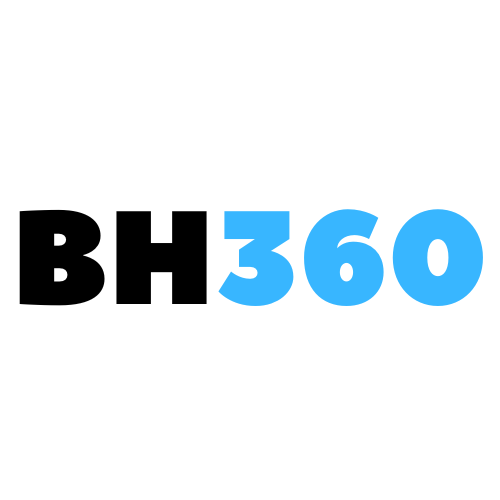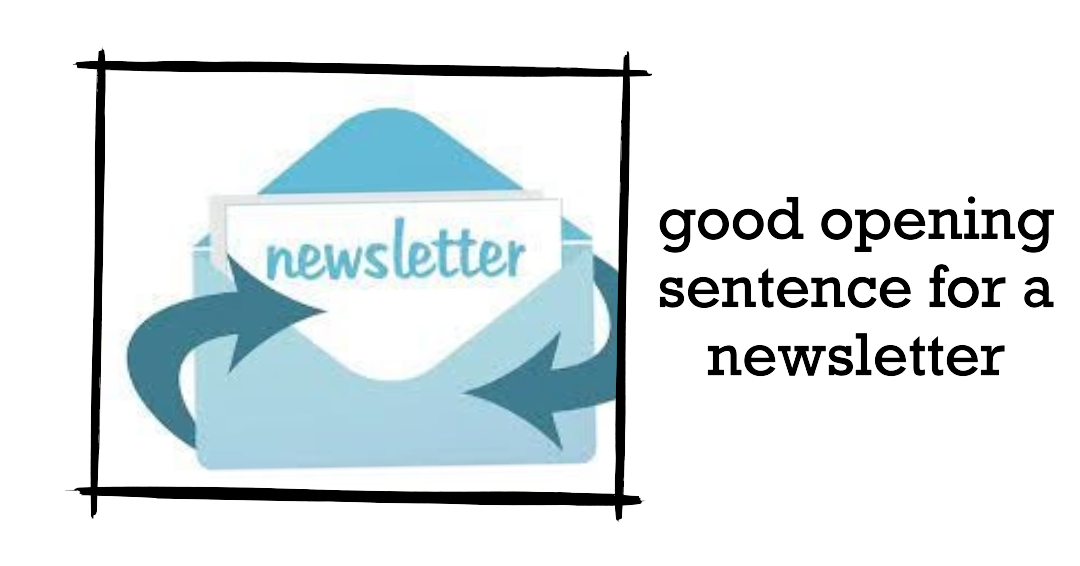What is a good opening sentence for a newsletter?
 Business Hub 360
Business Hub 360
Learn to write captivating newsletter openings that boost engagement. Discover expert techniques, examples, and common pitfalls to avoid. Elevate your newsletter game today!
\>>>The best platform for monetizing your newsletter<<<
The opening sentence of your newsletter can make or break your readers' engagement. It's the gateway to your content, the first impression that determines whether your audience will keep reading or hit that dreaded delete button.
Let's explore the art of crafting attention-grabbing, curiosity-sparking opening sentences that'll have your subscribers eagerly awaiting your next issue.
Understanding Your Audience
Before you type a single word, you've got to know who you're writing for. Your opening sentence should resonate with your readers like a familiar tune.
Knowing Your Readers' Interests
Dive deep into your audience's world. What makes them tick? What problems keep them up at night? Understanding these aspects helps you create openings that hit home.
Tailoring Your Opening to Your Target Demographic
Different strokes for different folks, right? A witty pop culture reference might work wonders for a young, trendy audience but could fall flat for a professional, business-oriented readership.
Analyzing Successful Newsletters in Your Niche
Don't reinvent the wheel. Look at newsletters that are killing it in your niche. What patterns do you notice in their openings? How can you adapt their strategies to fit your unique voice?
Elements of an Effective Opening Sentence
Now that you've got your audience in mind, let's break down what makes an opening sentence truly shine.
Grabbing Attention
Your first words should be like a spotlight in a dark room – impossible to ignore. Use powerful language, unexpected phrases, or intriguing concepts to make your readers sit up and take notice.
Creating Curiosity
Humans are curious creatures by nature. Tap into this innate desire to know more. Hint at something exciting without giving it all away upfront.
Establishing Relevance
Your opening should immediately signal to readers that what follows is worth their time. Connect with their current concerns, interests, or aspirations.
Promising Value
Give your readers a reason to keep going. What will they gain by reading further? Make it clear from the get-go that your newsletter offers something valuable.
Techniques for Crafting Compelling Openings
Ready to roll up your sleeves and start crafting? Here are some tried-and-true techniques to get those creative juices flowing.
Using Questions
Questions are like mental hooks. They engage readers by prompting them to think about the answer. For example: "What if you could double your productivity with just one simple habit?"
Sharing Surprising Facts or Statistics
Nothing captures attention quite like an unexpected fact. "Did you know that the average person spends 6 months of their life waiting for red lights to turn green?"
Telling a Story
Stories are the oldest form of human communication, and they're still incredibly effective. Start with a mini-narrative that relates to your main content. "Last Tuesday, I found myself locked out of my house in my pajamas. What happened next changed how I think about home security."
Making Bold Statements
Sometimes, a dash of audacity is just what you need. "I'm about to share the one marketing secret that made our startup a million-dollar success in just 30 days."
Examples of Great Newsletter Openings
Let's look at some real-world examples to inspire your own opening sentences.
For Business Newsletters
"The business landscape is shifting beneath our feet. Are you ready to evolve or risk becoming obsolete?"
For Personal Updates
"Remember when I said I'd never run a marathon? Well, I've got a story for you..."
For Educational Content
"Today, we're going to unravel the mystery of quantum physics – and I promise, by the end of this email, you'll be able to explain it to your grandmother."
For Entertainment Newsletters
"Buckle up, movie buffs. I've got the inside scoop on Hollywood's best-kept secret, and it's about to blow your mind."
Common Pitfalls to Avoid
Even seasoned writers can fall into these traps. Stay vigilant and steer clear of these common mistakes.
\>>>The best platform for monetizing your newsletter<<<
Being Too Generic
Avoid bland, overused openings like "Welcome to our newsletter" or "Hope this email finds you well." They're the literary equivalent of wallpaper – forgettable and easy to ignore.
Overusing Clickbait
While curiosity is good, don't cross the line into clickbait territory. Misleading or over-sensationalized openings might get clicks initially, but they'll erode trust in the long run.
Making False Promises
Ensure your opening aligns with the content that follows. Don't promise earth-shattering revelations if you're just sharing minor updates.
Being Overly Formal or Stiff
Unless you're writing for a very formal audience, loosen up a bit. Write like you're talking to a friend, not delivering a corporate memo.
Testing and Improving Your Openings
The journey doesn't end once you've crafted your opening. Continuous improvement is key to long-term success.
A/B Testing Techniques
Try different opening sentences with segments of your audience to see which performs better. Tools like Mailchimp or ConvertKit make this process straightforward.
Analyzing Open Rates and Engagement
Keep a close eye on your metrics. Are certain types of openings consistently performing better? Use this data to inform your future strategies.
Gathering Reader Feedback
Don't be afraid to ask your readers directly what they think. A quick survey can provide invaluable insights into what resonates with your audience.
Continuous Improvement Strategies
Set aside time regularly to review and refine your approach. The digital landscape is always evolving, and so should your writing style.
\>>>The best platform for monetizing your newsletter<<<
Conclusion
Crafting the perfect opening sentence for your newsletter is part art, part science, and a whole lot of practice. Remember, your goal is to create a connection with your readers from the very first word. Be authentic, be bold, and most importantly, be relevant to your audience.
Don't be discouraged if you don't nail it on the first try. Keep experimenting, learning from your successes and failures, and refining your approach. With time and persistence, you'll develop a knack for creating openings that not only grab attention but also set the stage for meaningful engagement with your readers.
So, are you ready to write an opening sentence that'll make your next newsletter unforgettable?
FAQ
Q: How long should my opening sentence be? A: Aim for brevity – typically 10-15 words. It should be long enough to convey your message but short enough to grab attention quickly.
Q: Can I use emojis in my opening sentence? A: Yes, if it fits your brand voice and audience preferences. Emojis can add personality, but use them sparingly and appropriately.
Q: Is it okay to use humor in my opening sentence? A: Absolutely, if it aligns with your brand and audience. Humor can be a great way to connect, but ensure it's appropriate and not offensive.
Q: How often should I change my opening sentence style? A: Variety is good, but consistency in voice is key. Aim to change your specific opening while maintaining your overall tone and style.
Q: Can I use the same opening for email subject lines and newsletter openings? A: While they can be similar, it's often better to differentiate them. Your subject line gets them to open; your opening sentence keeps them reading.
Subscribe to my newsletter
Read articles from Business Hub 360 directly inside your inbox. Subscribe to the newsletter, and don't miss out.
Written by

Business Hub 360
Business Hub 360
Get practical advice and inspiring stories on leveraging online and offline strategies for business growth and more